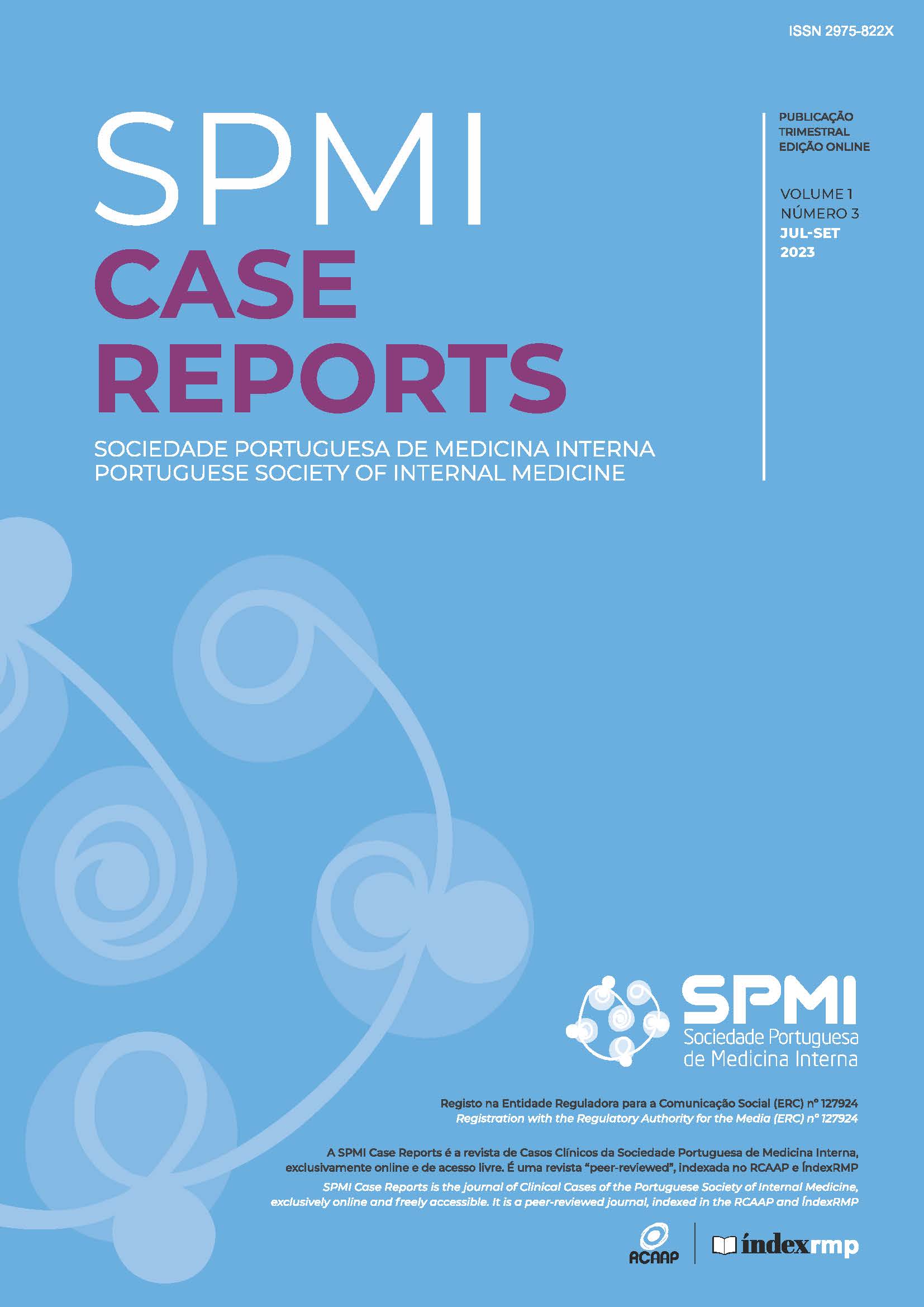Tumor Lysis Syndrome in Multifocal Hepatocellular Carcinoma under Sorafenib and SARS-CoV-2 Infection
DOI:
https://doi.org/10.60591/crspmi.74Keywords:
Carcinoma, Hepatocellular, COVID-19, Rasburicase, SARS-CoV-2, Sorafenib, Tumor Lysis SyndromeAbstract
Tumor lysis syndrome is a potentially fatal medical emergency resulting from massive tumor cell lysis that occurs in high tumor burden malignant neoplasms. It occurs mainly in
hematological neoplasms undergoing chemotherapy, being
less frequent in solid tumors, which generally have a lower
proliferative index. Tumor lysis syndrome in hepatocellular
carcinoma treated with sorafenib, an oral multi-kinase inhibitor, is extremely rare, with only nine cases reported in the
literature. As far as we know, there are no cases described
in the European population. We present a case of tumor
lysis syndrome in a patient with multifocal hepatocellular
carcinoma under treatment with sorafenib and SARS-CoV-2
infection.
Downloads
References
Cairo MS, Bishop M. Tumour lysis syndrome: new therapeutic strategies and classification. Br J Haematol. 2004;127:3-11. doi: 10.1111/j.1365-2141.2004.05094.x.
Llovet JM, Ricci S, Mazzaferro V, Hilgard P, Gane E, Blanc JF, et al. Sorafenib in advanced hepatocellular carcinoma. N Engl J Med. 2008;359:378-90. doi: 10.1056/NEJMoa0708857.
Durani U, Nilay DS, Ronald SG. In-Hospital Outcomes of Tumor Lysis Syndrome: A Population-Based Study Using the National Inpatient Sample. Oncologist. 2017;22:1506-09. doi: 10.1634/theoncologist.2017-0147.
Criscuolo M, Fianchi L, Dragonetti G, Pagano L. Tumor lysis syndrome: review of pathogenesis, risk factors and management of a medical emergency. Expert Rev Hematol. 2016;9:197-208. doi: 10.1586/17474086.2016.1127156.
Huang WS, Yang CH. Sorafenib induced tumor lysis syndrome in an advanced hepatocellular carcinoma patient. World J Gastroenterol. 2009;15:4464-6. doi: 10.3748/wjg.15.4464.
Joshita S, Yoshizawa K, Sano K, Kobayashi S, Sekiguchi T, Morita S, et al. A patient with advanced hepatocellular carcinoma treated with sorafenib tosylate showed massive tumor lysis with avoidance of tumor lysis syndrome. Intern Med. 2010;49:991-4. doi: 10.2169/internalmedicine.49.3153.
Shiozawa K, Watanabe M, Takenaka H, Nagai H, Ishii K, Sakai K, et al. Tumor lysis syndrome after sorafenib for hepatocellular carcinoma: a case report. Hepatogastroenterology. 2010; 57: 688-90.
Abbass K, Dewani S, Markert R, Kaplon MK, Baumann MA. All that glitters: sorafenib. Intern Med. 2011;50:797. doi: 10.2169/internalmedicine.50.4858.
Habib G, Nashashibi M. Fatal tumor lysis syndrome following sorafenib treatment. J Med Cases. 2013; 4: 269-70.
Kudo C, Miura M, Gamoh M, Niitani T, Tamagawa H, Takahashi K, et al. Tumor lysis syndrome after treatment with sorafenib for hepatocellular carcinoma. Int Cancer Conf J. 2015:147-50.
Kim SY, Kim HY, Kim YS, Lee SM, Kim CW. Tumor lysis syndrome following sorafenib treatment in hepatocellular carcinoma. Yeungnam Univ J Med. 2015; 32: 47-9.
Imam SZ, Zahid MF, Maqbool MA. Sorafenib-induced tumor lysis syndrome in a patient with metastatic hepatocellular carcinoma. Hematol Oncol Stem Cell Ther. 2020; 13: 168-70.
Chou JW, Cheng KS, Akella T, Lee CC, Ju T. Tumor lysis syndrome in patients with hepatocellular carcinoma: a systematic review of published case reports. Cureus. 2021; ;13:e19128. doi: 10.7759/cureus.19128.
Klann K, Bojkova D, Tascher G, Ciesek S, Münch C, Cinatl J. Growth Factor Receptor Signaling Inhibition Prevents SARS-CoV-2 Replication. Mol Cell. 2020;80:164-74.e4. doi: 10.1016/j.molcel.2020.08.006.








